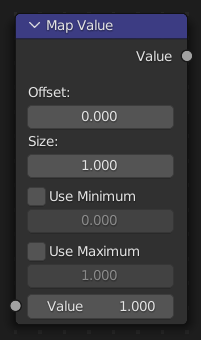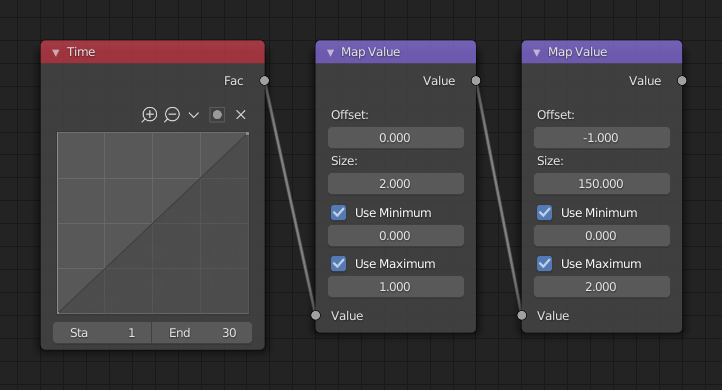Map Value Node#

Map Value node is used to scale, offset and clamp values.
Inputs#
- Value
Standard Value input. (Value refers to each vector in the set.)
Properties#
- Offset
Factor added to the input value.
- Size
Scales (multiply) the input value.
- Use Minimum, Maximum
Enable this to activate their related operation.
- Min, Max
Defines a range between minimum and maximum to Clamp the input value to.
Outputs#
- Value
Standard value output.
Example#
Z-Depth Map#
This is particularly useful in achieving a depth of field effect, where the Map Value node is used to map a Z value (which can be 20 or 30 or even 500 depending on the scene) to the range between (0 to 1), suitable for connecting to a Blur node.
Multiplying Values#
The Map Value node can also be used to multiply values to achieve a desired output value. In the mini-map to the right, the Time node outputs a value between 0.0 and 1.0 evenly scaled over 30 frames. The first Map Value node multiplies the input by 2, resulting in an output value that scales from 0.0 to 2.0 over 30 frames. The second Map Value node subtracts 1 from the input, giving working values between (-1.00 to 1.0), and multiplies that by 150, resulting in an output value between (-150 to 150) over a 30-frame sequence.

Using Map Value to multiply.#